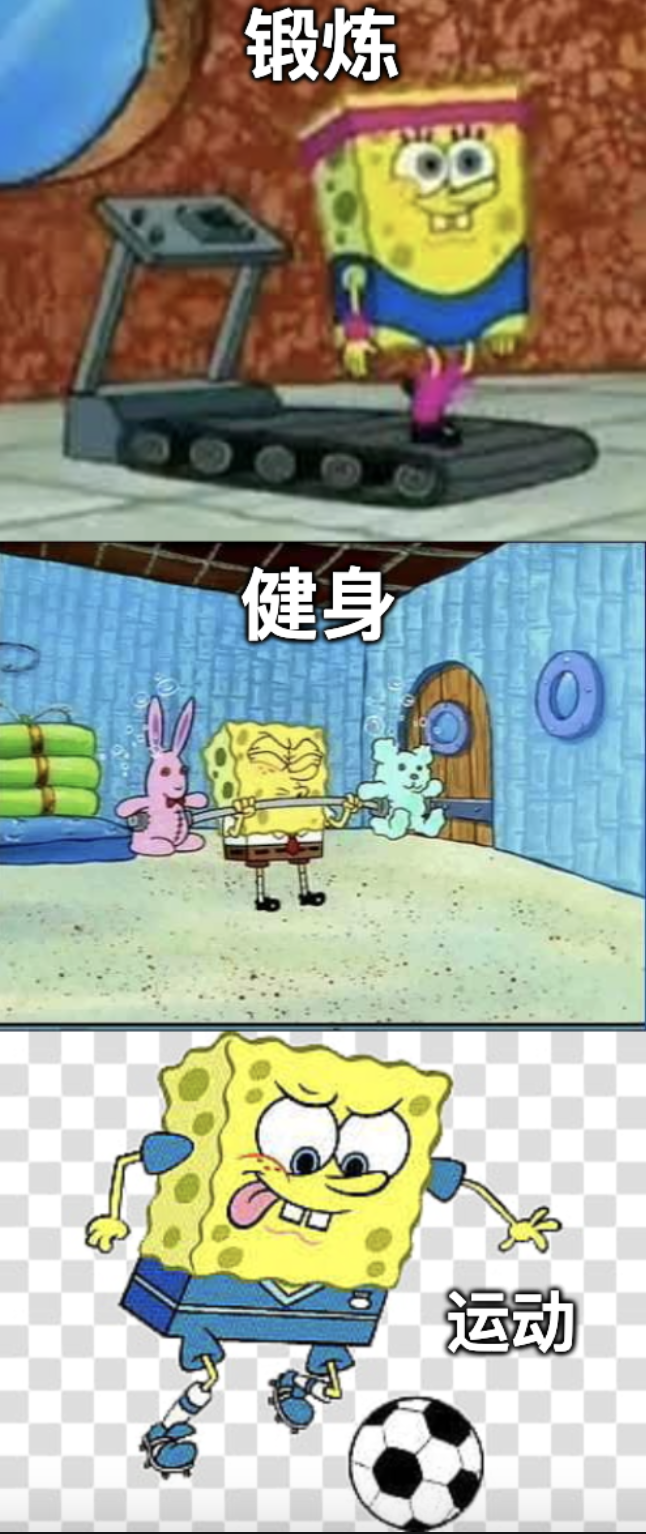Working Out How to Work Out in Chinese || 锻炼 vs 健身 vs 运动
Note: If you are new to characters or generally want some support while working through the example sentences in the next sections, we HIGHLY recommend downloading this plugin*! It will help a ton with character reading, both in this article, and on the greater web in general. If you’ve already installed it, carry on! :)*
Do you exercise regularly? If you’re learning Chinese and want to talk to your Chinese-speaking friends about your fitness habits, you’ll have to know how to navigate among Chinese’s 3 words for “working out”: 锻炼,健身,and 运动。
Let’s work out which one to use and when!
TLDR
锻炼 is used when discussing “exercise for health and endurance”
健身 is used to refer to “exercise for strength and musculature”
运动 is used when discussing “exercise for pleasure” (i.e. sports)
锻炼
锻炼 literally means “forge refine”. While it can be used in the literal sense of forging and refining materials like iron and steel, nowadays it usually refers to any exercise that’s done primarily with the intention of increasing your health and endurance.
This makes sense, considering that by working out, you’re “forging and refining” your body, right?
Ex:
我很重视健康,所以我每天都要锻炼。
I view health as being very important, so I must work out every day.
我锻炼的时候一般会跑步或举重,因为跑步对心脏很好,举重对肌肉和骨头很好
When I work out I usually run and lift weights, because running is good for your heart and lifting weights is good for your muscles and bones
*Notice that in both sentences the speakers are emphasizing physical fitness!
锻炼 can also be used with a direct object. For example, the sentence “我今天要锻炼腿的肌肉“, meaning “Today I’m going to work out my leg muscles”, has “腿的肌肉” as 锻炼’s direct object.
This can be thought of as “forging and refining” your leg muscles. ⚒️ 🦵
健身
健身 is a more recent addition to the Chinese language, and is often used to refer to fitness or bodybuilding culture.
In fact, it literally can be translated as “build body”, —> bodybuilding!
Like the term “bodybuilding”, 健身 specifically refers to activities that are done with the purpose of building strength and musculature.
This can include weightlifting, bodyweight exercises, or using gym equipment. 健身 is often associated with a more intense and serious approach to fitness than either 锻炼 or 运动.
Here’s an example based on a real-life conversation I had with Chinese college students:
Me: 我在考虑开始举重
I’m pondering starting to lift weights
Student: 真的?那我们就可以一起去健身房健身!
Really? Well then, we can go to the gym and lift weights together!
As is to be expected of a discussion about weight lifting, the word of choice here was 健身.
*Note that both 锻炼 and 健身 can be used to discuss working out in the context of strength training. However, 锻炼 has a more health and wellness-focused connotation.
This conversation also shows one of the words you can use for “gym” in Chinese, which is “健身房“, literally “bodybuilding place”.
运动
The word 运动 is a more general term that can be translated as "physical activity" or "sports”.运动 is often used when discussing exercise in the context of leisure activities or hobbies, such as sports like basketball and tennis 🏀 🎾
Think of it as “exercise for pleasure” 😄
Ex:
A先生:我们这个周末运动吧! B女士:好啊,我们明天去打乒乓球!
Mr A: Let’s play some sports this weekend! Ms B: Sounds great, let’s go play ping pong tomorrow! 🏓
A先生:你运动的时候喜欢做什么? B女士:我喜欢打篮球,因为我小时候总是跟我爸爸打。
Mr A: What do you like to do when you play sports? Ms B: I like playing basketball, because when I was small I would always play it with my dad.
*Note that in Example 1 above, we used 运动 along with the sport “table tennis”, which wouldn’t be the case for 锻炼 and 健身 considering that table tennis is not thought of as a vigorous physical activity that is done to build health and musculature.
**Also note that 运动 can be used as a noun meaning “sport”, with sentences like “你最喜欢的运动是什么?“ meaning “What’s your favorite sport?”.
To Conclude
Stripped down to the bare minimum, here’s what you should take away from all this:
锻炼 = health and endurance
健身 = strength and musculature
运动 = pleasure, fun and games
Have you **worked out** how to use these words now? Try out this quiz!


